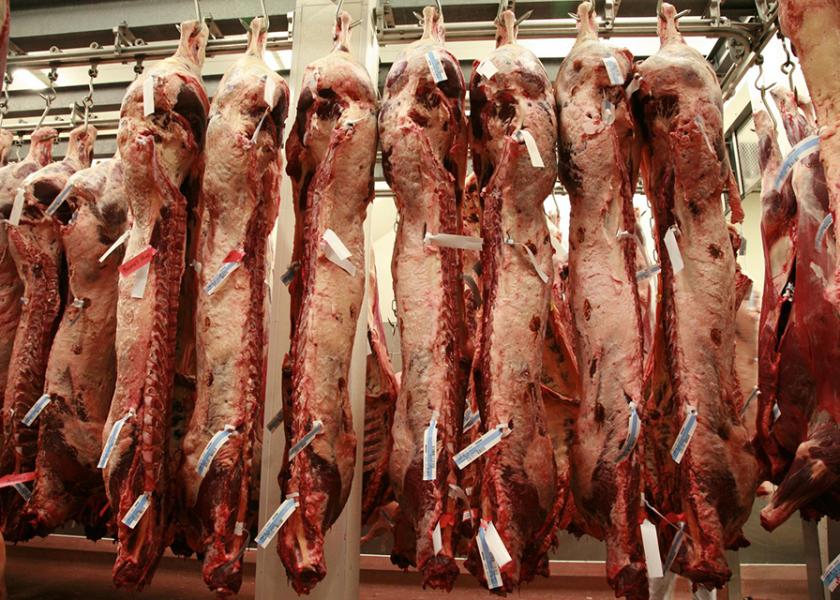Tyson Foods Is Using DNA to Prove the Pedigree of Premium Beef

Responding to consumer demands for traceability, Tyson Foods Inc. plans to use DNA samples from elite cattle to track steaks, roasts and even ground beef back to the ranches the animals grew up on.
Consumer research keeps showing that shoppers are demanding to know where their food comes from, said Kent Harrison, vice president of marketing and premium programs at Tyson Fresh Meats. A majority of Americans want to know everything that’s in their food, and more are trying to buy healthy and socially conscious products, according to Nielsen.
Because the beef supply chain is fragmented, with different businesses in charge of growing, feeding and processing cattle, traceability back to farms is extraordinarily difficult, according to Harrison. The DNA program should be seen by “people buying meat at retail and food service distribution as an assurance of quality,” he said.
Tyson’s Open Prairie brand, which sources animals raised with no antibiotics and no added hormones, keeps records tracing beef back to ranches. Now, samples the size of a grain of rice will be taken from carcasses at the processing facility, and a company called IdentiGEN will use proprietary sets of DNA markers -- nature’s bar codes -- to identify individual animals. The markers don’t change, whether the meat is cooked or processed.
Cattle sourced from the Open Prairie brand come mostly from independent ranchers in Montana, North Dakota, Oregon, Washington and Nebraska. They’re processed at Tyson’s Lexington, Nebraska plant. Open Prairie makes up less than 10 percent of Tyson’s beef supplies. But it’s the biggest no-antibiotics-ever program and growing fast, Harrison said.
Eventually, there could be more consumer applications for DNA tracking when the costs of sampling get cheaper, Harrison said.







